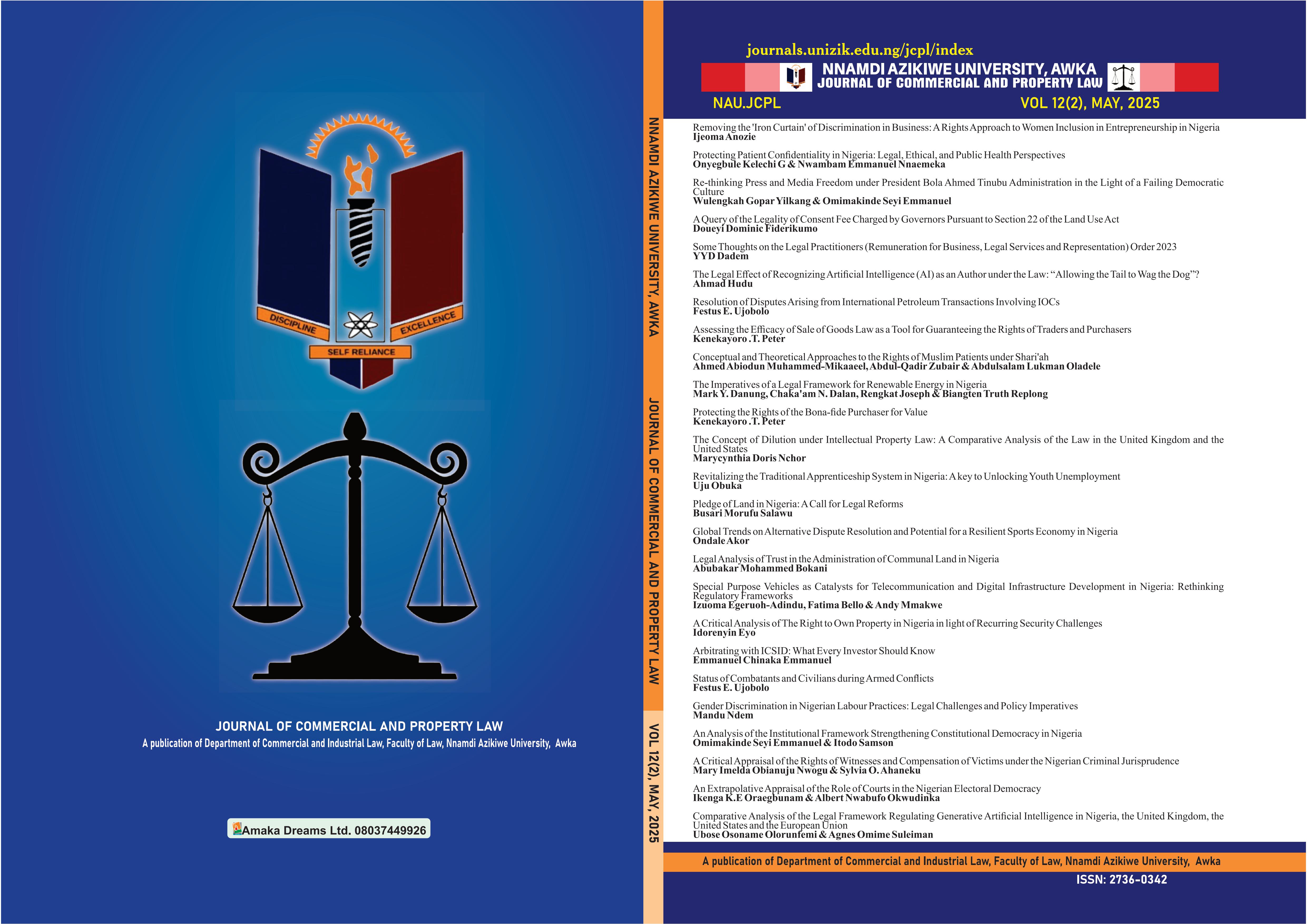THE CONCEPT OF DILUTION UNDER INTELLECTUAL PROPERTY LAW: A COMPARATIVE ANALYSIS OF THE LAW IN THE UNITED KINGDOM AND THE UNITED STATES
Keywords:
Dilution, confidential, gatt, intellectual property , global trade, trademark, United Kingdom, United StatesAbstract
The fear of trademark infringement deters many creatives from truly reaching their potential in the works they create. However, the law over time has been developed to cater for all types of trademark infringement regardless of the jurisdiction one finds themselves. This, an infringement of a registered trademark is something that can be challenged successfully in the court of law whether in a civil law country or in a common law country. Dilution is a clever version of trademark infringement that mirrors the original mark so well that an officious onlooker will be deceived to think the marks are one and the same. Dilution in the UK evolved from the more traditional trademark claim of infringement in which trademark is stolen from the owner by a junior user. For a long time in the UK, cases akin to dilution were treated under the common law tort of passing off.
Using a doctrinal research methodology, this study examines the concept of trademark dilution under intellectual property law, with a particular focus on the method of trademark infringement as obtainable in the United kingdom (UK) and comparing the reality with that of the United States (U.S) drawing out valuable lessons that can help shape up global trademark practice for better outcomes. The study is not just a comparative analysis but a review of the major laws in both jurisdictions on the law governing dilution.

